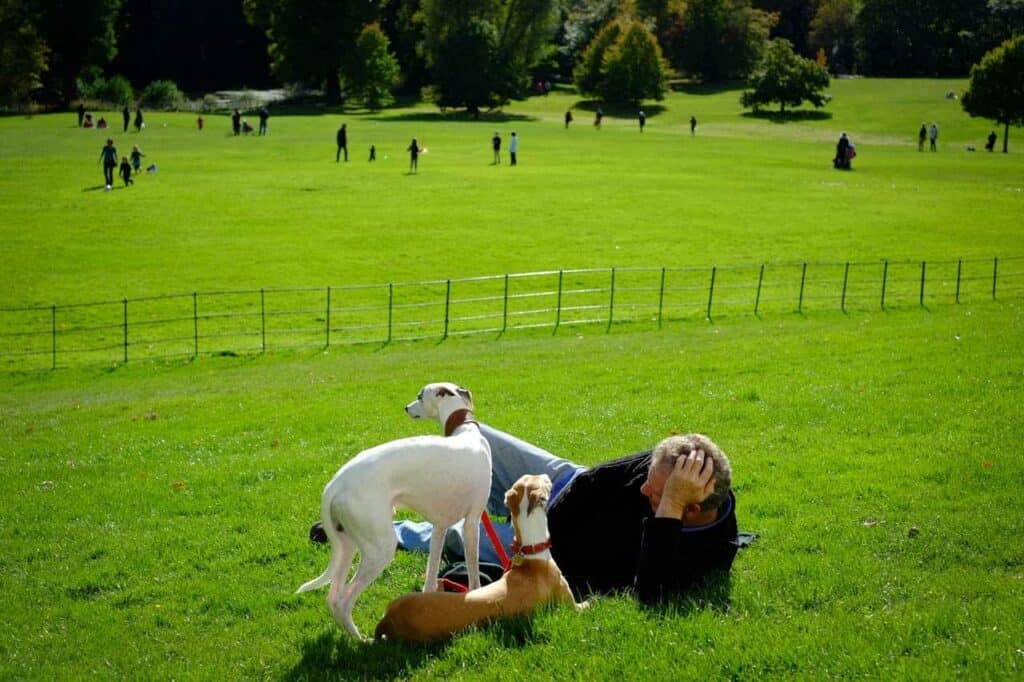Introduction: The Evolutionary Journey
Dogs, known for their loyalty and affection, share a deep-rooted history with their wild ancestors, the wolves. This connection stretches back tens of thousands of years to a time when early humans and gray wolves first crossed paths. Initially, these wolves were attracted to human encampments by the lure of easy meals in the form of scraps and leftovers. As these interactions grew more frequent, a symbiotic relationship began to blossom between the two species.
Humans quickly recognized the potential benefits of forming alliances with these intelligent and adaptable animals. In exchange for food and shelter, the wolves provided invaluable services: they helped to guard the camps against predators and assisted in tracking and hunting game. This early cooperation marked the initial steps towards the domestication of the dog.
Over successive generations, this relationship deepened, leading to more deliberate interactions between humans and select groups of wolves. Through a process of careful selection, humans began to encourage the reproduction of wolves that exhibited traits most beneficial to their way of life—such as a gentle nature, trainability, and a keen sense of smell. This selective breeding gradually transformed these early wolves into more varied and specialized groups, eventually giving rise to the first true dogs.
This transformation was guided by the needs and environments of their human companions, resulting in the emergence of distinct breeds optimized for different tasks such as herding, guarding, and companionship. Each breed was shaped to excel in specific roles, contributing to the rich variety of dog breeds we see today. From the nimble Border Collie to the robust Saint Bernard, each breed carries a unique set of traits perfected over millennia of shared history with humans. This enduring partnership has not only led to the diverse spectrum of canine breeds but has also forged an unbreakable bond between our two species, illustrating the profound and lasting impact of this ancient alliance.
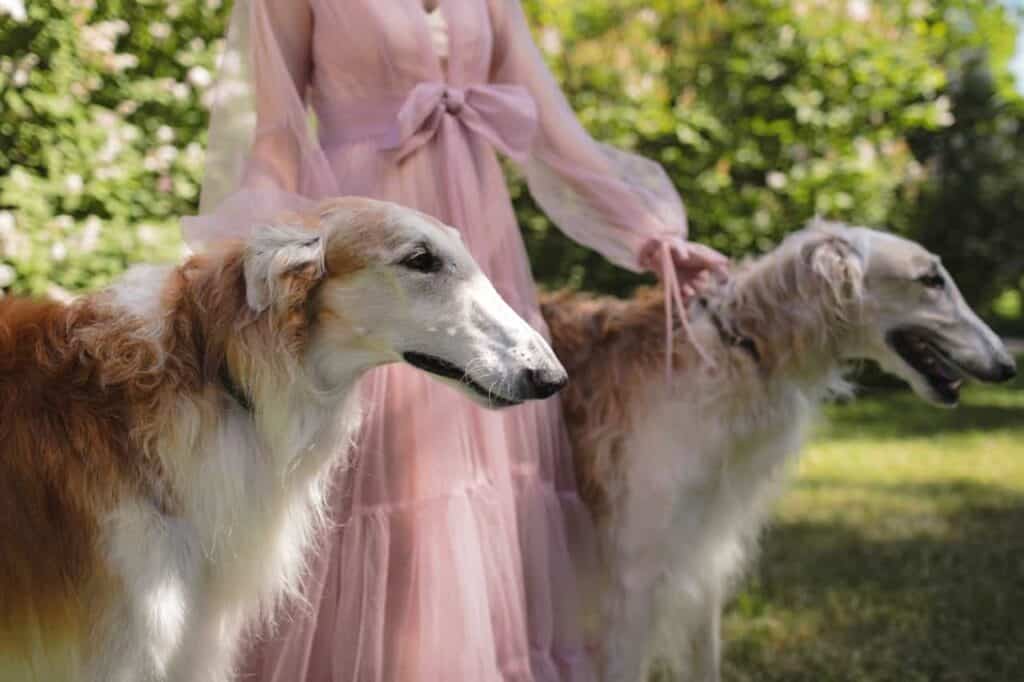
The Historical Roles of Dogs in Human Societies
Throughout the ages, dogs have stood by the side of humans, not only as faithful companions but also as indispensable workers. From the early days of civilization, dogs have been integral to daily life and survival. In ancient societies, they played critical roles in hunting, using their keen senses to track and retrieve game. They were also tasked with herding livestock, a vital job that helped protect and manage sheep, goats, and cattle, contributing significantly to agricultural success.
As societies grew and diversified, so too did the roles of these versatile animals. In times of conflict, dogs were trained as messengers, reliably carrying vital communications across battlefields where no human could pass unnoticed. Their speed and agility made them excellent for delivering messages that could turn the tides of war.
Beyond the battlegrounds, dogs served as rescuers, bravely searching for and saving lives during disasters and emergencies. Their extraordinary sense of smell and unyielding determination equipped them to find survivors buried under rubble or lost in vast wilderness areas, proving crucial in rescue missions and often being the difference between life and death.
In more peaceful times, dogs have also served as therapeutic companions, offering comfort and support to those in need. Hospitals, nursing homes, and therapy sessions have welcomed dogs to help alleviate stress, reduce anxiety, and bring joy to countless individuals. Their presence can calm nervous patients, bring smiles to faces, and even improve overall emotional and physical well-being.
The myriad roles dogs have played are a reflection of their adaptability and the special place they hold within human societies. The evolution of these roles has paralleled that of human society, with each advancement or change bringing about new ways for dogs to assist their human counterparts. The enduring relationship between dogs and humans is not just beneficial but transformative, highlighting a dynamic bond that has strengthened and deepened through the centuries. This profound inter-species partnership underscores the unique and enduring place dogs hold in human history and hearts.

Types of Dogs and Their Roles
Working Dogs
Working dogs are specially bred to perform various tasks that aid humans, demonstrating incredible versatility and skill across numerous roles.
Herding Dogs
Herding dogs are trained to manage and control the movement of livestock. One of the most adept breeds in this category is the Border Collie, renowned for its intelligence and agility. Originating from the Anglo-Scottish border region in the 19th century, Border Collies are exceptional at understanding and executing commands, making them ideal for herding sheep and other livestock. Similarly, Australian Shepherds, developed in the Western United States in the 19th century, are also skilled at herding and are known for their high energy and perseverance.
Service Dogs
Service dogs include a range of breeds trained to assist people with disabilities. Labradors and Golden Retrievers are among the most common guide dogs for the blind, prized for their docile temperament and intelligence. They have been extensively used since the 1920s when formal training programs began. Psychiatric service dogs, such as Poodles, are known for their hypoallergenic coats and sensitive nature, making them perfect for those with allergies and emotional support needs.
Search and Rescue Dogs
These dogs are trained to locate missing persons and are crucial in disaster response. Breeds like the German Shepherd and the Belgian Malinois excel in this role due to their strong work ethic and resilience. German Shepherds have been used in search and rescue since World War I, thanks to their powerful sense of smell and ability to work under challenging conditions.
Military and Police Dogs
For detection, protection, and law enforcement, breeds like the Belgian Malinois and the Dutch Shepherd are prominent. Their keen senses, physical prowess, and trainable nature make them ideal for police and military work. These breeds have been integral to law enforcement and military operations since the early 20th century, involved in tasks from narcotics detection to patrol duties.
Sporting and Hunting Dogs
Originally bred for tracking and retrieving game, these dogs are energetic and excel in field activities.
Retrievers
Labrador Retrievers and Golden Retrievers are prime examples of this group. Bred in the early 19th century in the UK, they are used for retrieving game due to their soft mouth grip, which does not damage the game. They are also popular in competitive sports and hunting activities because of their friendly nature and keen retrieving instincts.
Setters and Pointers
English Setters, bred in England around the 14th century, are known for their methodical search of game and gentle manner. Similarly, the German Shorthaired Pointer, developed in the 19th century in Germany, is versatile in hunting birds and small game due to its excellent scenting power and high energy levels.
Toy and Companion Breeds
These smaller breeds are primarily valued for their companionship but are also known for their spirited personality.
Chihuahuas
Originating from Mexico in the 19th century, Chihuahuas are one of the smallest dog breeds. They are known for their loyalty and protectiveness, making them excellent companions despite their petite size.
Pomeranians
Developed in the Pomerania region of Central Europe in the early 16th century, Pomeranians are small but have a robust and lively character. They serve as wonderful companions and are suitable for apartment living due to their size.
Each of these breeds demonstrates how selective breeding has honed specific traits to fulfill distinct roles, enriching human lives in countless ways. From the fields to our homes, dogs continue to be indispensable partners and beloved family members.
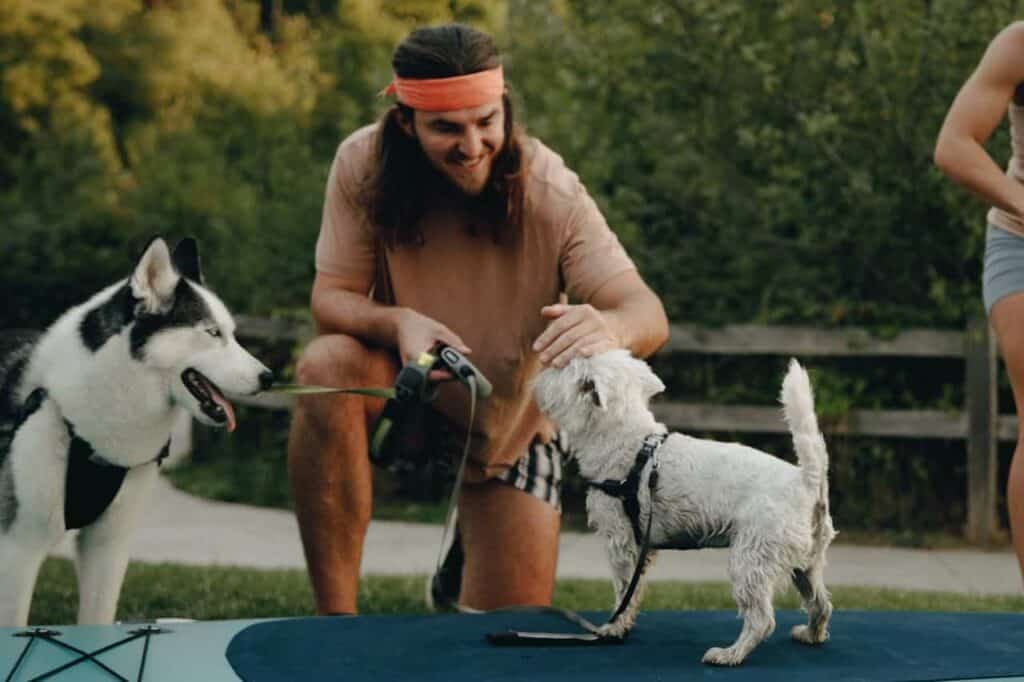
The Importance of Dog Boarding
For dog owners, ensuring their pets are well-cared for in their absence is a paramount concern. Dog boarding facilities like “Our World of Dogs” in Budigere, Bangalore, address this need by providing a secure and enriching environment where dogs can stay active and content. This facility distinguishes itself by offering a cage-free, home-like atmosphere that prioritizes cleanliness and the comfort of the dogs.
At “Our World of Dogs,” the surroundings are meticulously maintained, and the facility operates with an eco-friendly ethos. It features solar-powered air conditioning to keep the environment comfortably cool without impacting the climate. This thoughtful approach ensures that every dog enjoys their stay in a setting that feels as close to home as possible.
Why Choose “Our World of Dogs”?
Strategically located in the serene outskirts of Bangalore, “Our World of Dogs” is more than just a dog boarding facility; it’s a retreat where pets are treated with the utmost care and respect. The facility offers spacious play areas and cozy sleeping quarters that replicate the warmth and comfort of a home environment.
The staff at “Our World of Dogs” are exceptionally trained and come with experience from pet clinics and specialized training akin to that of dog whisperers. This expertise ensures that every pet receives professional and personalized care. Safety is paramount, and the facility is equipped with multiple CCTVs to provide 24/7 security.
Additionally, “Our World of Dogs” stands ready to assist with emergency boarding needs at any time. Open 24/7/365, it is an ideal option for unexpected travel plans or emergencies, ensuring that you have a reliable and trustworthy boarding option available at all hours.
With reasonable rates and a commitment to high-quality care, “Our World of Dogs” is an excellent choice for “dog boarding Bangalore,” offering a luxurious, safe, and eco-friendly environment for your pet. It’s the perfect blend of professional care and homely comfort, providing peace of mind to dog owners and a delightful stay for their pets.
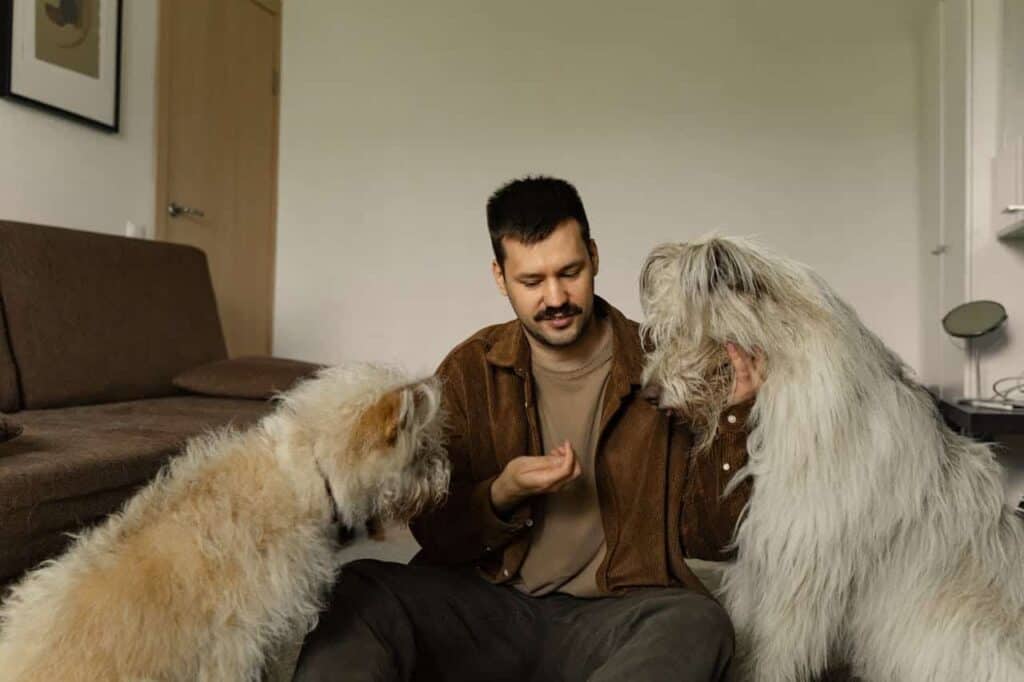
The Emotional and Health Benefits of Owning a Dog
Physically, dogs encourage a more active lifestyle. Having a dog means regular walks, outdoor play, and other physical activities that contribute to a healthier lifestyle. This increase in activity helps dog owners stay fit and can lead to meeting daily exercise goals more consistently. Moreover, the physical benefits extend to cardiovascular health—regular walks and active play can reduce blood pressure and cholesterol levels. Numerous studies have validated these health advantages, noting that dog owners often experience better overall physical health than those without pets.
The decision to bring a dog into one’s life can bring substantial emotional and physical health benefits. Dogs provide much more than just companionship; they offer unconditional love that can be a calming force in our lives. Their presence can significantly decrease stress levels, helping to soothe anxiety and mitigate feelings of depression. This emotional support is especially vital in today’s fast-paced world, where mental health concerns are increasingly prevalent.
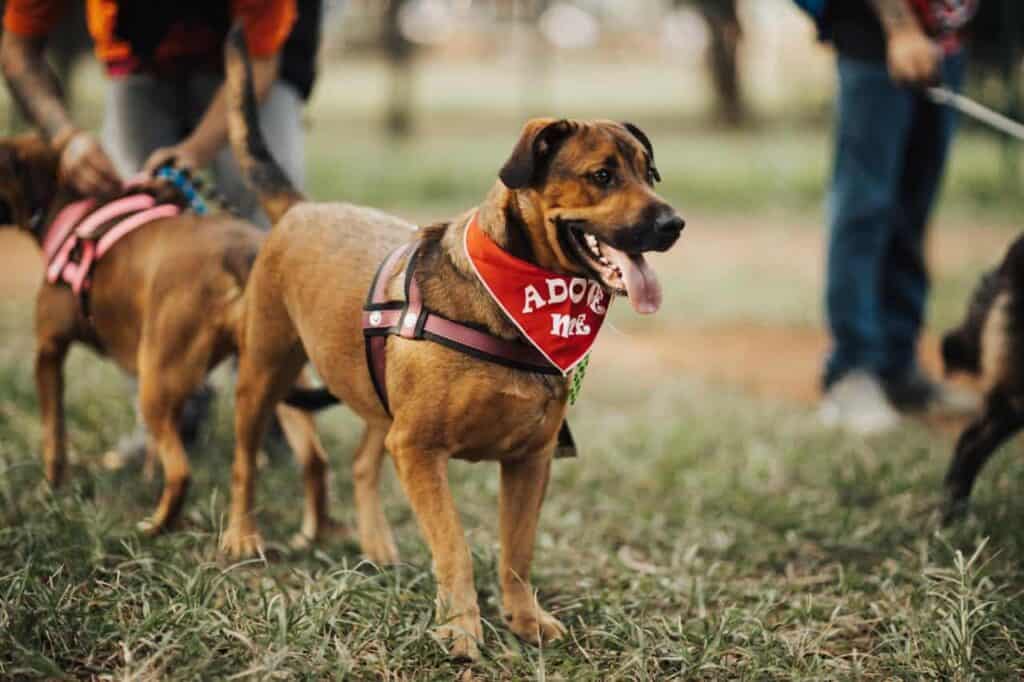
Conclusion: A Bond for the Ages
The evolution of dogs from wild wolves to cherished members of our households speaks volumes about the enduring connection between humans and dogs. This profound relationship has developed over thousands of years and continues to grow stronger with each passing day. Today, dogs are considered much more than mere pets; they are integral family members who bring joy, companionship, and comfort into our lives.
Recognizing and respecting this deep connection, facilities like “Our World of Dogs” in Budigere, Bangalore, are dedicated to providing the utmost care for dogs when their owners must be away. They create a nurturing environment that mirrors the love and attention dogs receive at home. Whether serving as working partners, devoted companions, or beloved family members, dogs significantly enhance our lives in myriad ways. Their loyalty, affection, and ability to connect with humans reinforce why dogs are truly man’s best friend, showcasing the timeless bond that has evolved between our species.

